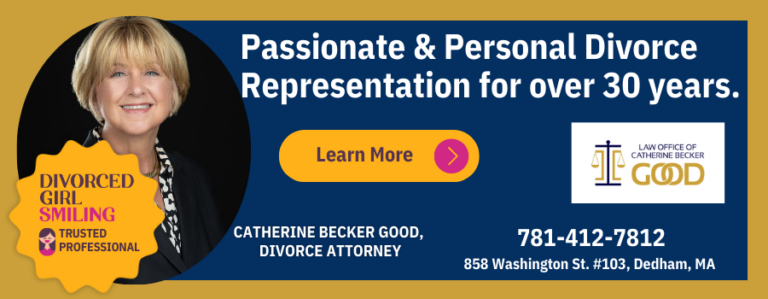The first time meeting with a divorce lawyer can feel stressful. In my 34 years of practicing law, I can say that when I meet a client for the first time, though each situation is unique, the client is almost always feeling common emotions. These can include: sadness, anger, fear, and of course, confusion. There are so many questions to ask a divorce lawyer, and sometimes, clients don’t even know what to ask!
It is important to ask a lot of questions and to ask the right questions, so that you hire an attorney you feel you can trust, who you feel comfortable with, and who you think will get you the best outcome possible.
If you are considering or planning on meeting with a divorce attorney, I think I can help make the meeting more productive by offering:
10 Questions to Ask a Divorce Lawyer at Your First Meeting
1. What percentage of your practice consists of mediation cases, collaborative divorce cases and/or cases that are in litigation? Which process do you work in mostly?
This question is important because you want to make sure your lawyer has a lot of experience, and even a passion, for the divorce process you are considering. For example, if you know your case is most likely going to have to be litigated, you want to hire an attorney whose cases are mostly clients in litigation. He/she needs to be an expert in that field and doing it all the time. On a side note, litigation is becoming less and less common, and most couples can get divorced more amicably. Situations in which litigation is used include couples who have extremely high net worth, couples who own a large business, substance abuse issues, and emotional, financial or physical abuse issues.
2. What does the mediation process look like?
Mediation is a process in which the couple goes to weekly or bi-monthly meetings with a certified divorce mediator with a goal of reaching an agreement on all issues with the mediator’s assistance. The divorce agreement is effectively the couples’ contract moving forward. It is therefore extremely important to ensure that the Agreement is comprehensive, specific and anticipates changes over time. An Agreement that does not cover a particular issue will result in the parties having to go to court for a judge to determine the issue, which costs time and money and adds stress to everyone’s life.
A loosely drafted Agreement will be difficult to enforce. An Agreement that does not anticipate changes, or does not account for them in the Agreement, will also force a couple to seek court intervention. Agreements typically include the following issues: custody, support, parenting plans, payment of educational expenses, alimony, asset division, debt division, life insurance coverage, medical insurance coverage post divorce and tax credits. Mediation can be conducted with the help of each of the divorcing spouse’s attorneys (which is called attorney assisted mediation) or solely with the mediator.
3. What are the benefits of mediation?
Mediation has many benefits. First, it is much less costly than a litigated divorce. Typically, a mediator will quote a flat fee for a certain number of hours of mediation. Couples like this option because they know up front what their legal fees will be. Mediation is also typically a fraction of what a couple would have spent if they had litigated the divorce. Secondly, mediation helps a couple get divorced in a relatively short amount of time. Mediation can take anywhere from a few months to a year—much much shorter than if the couple litigates the divorce, which can last anywhere from one year to several years depending upon the complexity of the divorce and court congestion.
Perhaps the biggest advantage of mediation is that couples can be creative and craft agreements that work for their family, based upon their facts. The couple is empowered to have total control of the terms of the agreement, versus having a judge tell them what their future will look like. Additionally, self-drafted Agreements will contain greater detail than an order issued by a judge. For example, parties can create a detailed holiday and vacation parenting plan that suits their family’s needs.
I have also observed that both of the divorcing parties are more likely to comply with the terms of the divorce agreement when they draft it. Perhaps this is because they themselves helped decide what they thought was fair and reasonable. Finally, mediation, when successful, results in less animosity between the parties, which is beneficial to them individually, and is particularly beneficial to the family when children are involved.
4. How long have you been practicing law?
This is an important question, obviously, to make sure the attorney has the experience needed to be effective. There is no magic number of years of experience that will guarantee quality of representation, but hopefully in speaking to the attorney you will be able to gauge his or her level of expertise.
5. Do you have children?
If you are getting divorced and you have children, you might want to ask this question. While this is not necessarily a prerequisite to retaining an attorney, I find that having had children and having experienced the day to day from infancy to adulthood, I have a first hand knowledge of some of the issues and concerns raised by clients.
6. Are you going to be working on my case or do you have associates who will be working on it, as well?
The reason this is an important question to ask a divorce lawyer, is that different lawyers (even lawyers at the same firm) charge different hourly rates. If you are hiring a partner, you might want him/her to show up in court for you, but there might be some work that his/her associates can do beforehand that will be billed to you at a lower rate. This can assist in reducing your legal bill.
At our firm, I am the primary contact with the client and am the one will appear in court on behalf clients, but I utilize my law clerk and assistant, who bill out at a reduced hourly rate, to perform some of the more routine tasks, such as preparing discovery requests or responses, assisting clients in filling out financial statements or drafting standard forms. Not only is this division of labor cost effective for the client, but it also increases efficiency .
7. What is the best way and most cost effective way for us to stay in touch?
I can only answer this question for me and my firm. The best and most cost-effective way for us to stay in touch is via email. The reason? It doesn’t take a lot of time to answer an email, which will keep billing rates lower. Of course, if you need or want to talk to me personally, I would never discourage someone from picking up the phone and calling me or from scheduling a zoom or in person meeting. I am accessible.
8. How long do you think this is going to take and how much do you estimate it costing?
If you ask this question, your attorney is probably going to say, “It all depends…” and it will turn into a longer conversation. There really is no way to estimate time and money when it comes to a divorce. That said, I always like to tell my clients that oftentimes the cost and length of litigation will depend upon their spouse and/or who their spouse retains as an attorney. If the spouse and/or attorney are amicable in their approach, the divorce process will proceed more quickly and the cost will be less. If, on the other hand, the spouse and/or attorney are litigious and file motions or otherwise require court involvement, the process will be more prolonged and the costs will consequently increase.
9. What are your strengths?
It will be telling for your potential attorney to state what he or she believes his or her strengths are, because that will typically reveal their approach to practicing law. You can then determine if what they bring to the table matches what you need in your case. For example, an attorney may share that they take an aggressive approach, while others may state that they start with a collaborative approach.
It is important to determine if your strategy is compatible with your prospective attorney’s strategy to ensure that you and your attorney are on the same page. I would state that my strength is my ability to reduce my clients’ stress in going through the divorce process. My clients appreciate the fact that I assist them through the divorce process and into the next phase of their life with the least amount of stress possible .
10. Am I going to be OK?
You might want to ask this question just to hear how the lawyer responds. The response will help you gauge his or her level of empathy, compassion and understanding. My answer to “Am I going to be Okay?” is “Of course you are!”
In closing, that first meeting with your divorce lawyer might seem overwhelming, and the process might seem complicated and hard to understand. Please don’t worry. You will become educated (and actually empowered) in the weeks and months ahead. And, asking questions is a great way to do that! I am here for you to answer any questions you have in a no-charge consultation.
Like this article? Check out “Can’t Make Decisions During Divorce? We Understand”






















I like that you mentioned how one must look into the strengths of a potential attorney that one would hire when going through a divorce. My sister’s best friend told me she wants to end her marriage with her husband, and it seems that she would benefit from having a professional’s help. I should look for a divorce lawyer who could provide the legal support she needs right now.
The article on “10 Questions to Ask a Divorce Lawyer at Your First Meeting” on the Divorced Girl Smiling website is a valuable resource for anyone who is contemplating a divorce and seeking legal counsel. The author provides a helpful list of questions to ask a divorce lawyer during the initial consultation, such as questions about their experience and credentials, their approach to divorce cases, and their fees and billing practices.
By asking these questions, individuals can gain a better understanding of their legal options, as well as the costs and potential outcomes of the divorce process. This can help them make informed decisions about how to proceed and select the right lawyer for their needs.
Overall, the article serves as a useful guide for anyone who is considering a divorce and looking for a divorce lawyer. By asking the right questions and doing their research, individuals can better navigate the legal system and achieve a more positive outcome from their divorce proceedings.
Asking about the timeframe of the divorce case and getting an idea of how much it will cost will really be important. If you have an idea about that, you’ll definitely feel more prepared to tackle it and manage the overall case in an orderly manner. Should any relative of mine need to handle that case, I’ll help them inquire about this with a local divorce lawyer.